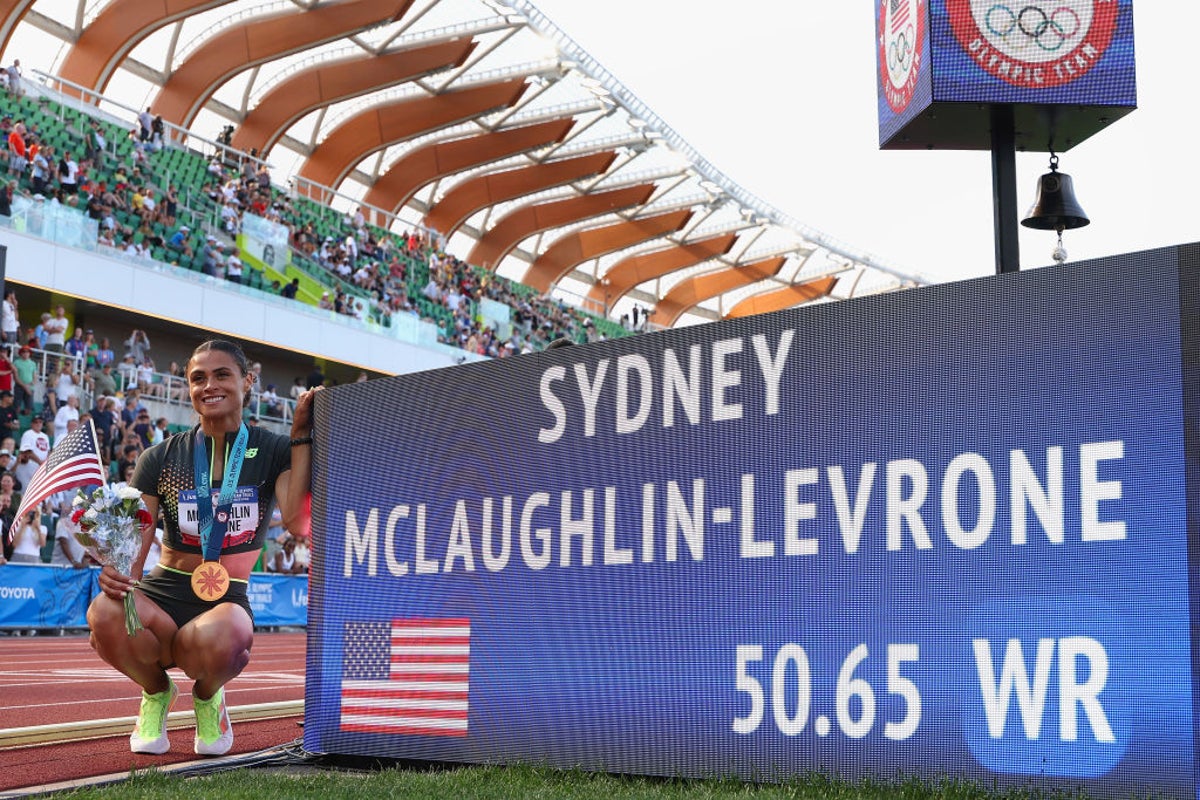
Support truly
independent journalism
The attention of the sporting world is on Paris as the Olympics are held once more in the City of Light, exactly 100 years after the last edition.
The world’s finest athletes will be competing to take home gold in the French capital, and millions of fans will be watching their efforts.
But with over 329 events across 48 disciplines, the Olympics can make for a complicated spectacle at times, especially when you see the number of official codes and abbreviations that are used throughout the Games.
With abbreviations used for different countries, athlete classifications, governing bodies, post-event results and more, keeping track of everything happening at Paris 2024 could prove difficult.
Below, we’ve created a rundown of the most common abbreviations and what they mean, from IOC and ROC to DNS and DNF.
Country codes at the Olympics
Starting off with something a little more simple, but it’s worth remembering that all the countries have their own codes, for example in the medal tables.
Most of these are straightforward, though remember that the codes are taken from the French name for each country. Some examples include Spain (ESP), Austria (AUT), Switzerland (SUI) and Equatorial Guinea (GEQ, derived from Guinée équatoriale).
Team GB’s abbreviation is GBR, with the US given USA and South Africa given RSA.
One code that will be seen at times, but not in the medal tables, is AIN. This stands for Individual Neutral Athlete and is the code given for those athletes from Russia and Belarus who were invited to the Games. Both countries are banned from competing due to the invasion of Ukraine. This is the fourth Olympics in a row where Russian athletes haven’t been able to compete under their flag, after the Russian Olympic Committee (ROC) was used in past editions due to a ban imposed after widespread doping violations.
Another code you will likely come across is EOR – this code is for the Olympic Refugee Team. 36 athletes will represent the team this year.
Finally, two more common codes that relate to the participant nations are NOC, which stands for National Organising Committee, and IOC, which is the International Olympic Committee.
Athletics abbreviations at the Olympics
Any time you see WR, that is the abbreviation used for a new or existing world record (depending on where you see it). Similarly, OR stands for Olympic record. Meanwhile, PB is used for an athlete’s personal best, while SB stands for season best.
Any athlete who is listed as DNS did not start their event (usually a race of some sort), and DNF is used for those who did start but did not finish. DQ is used when an athlete has been disqualified, for example after false starts in the 100m.
In any sport where there are heats or qualification rounds, a ‘Q’ is used to denote those participants that have qualified for the next round or heat. A lower-case ‘q’ is used if an athlete has provisionally qualified but is still waiting to see if their effort beats others who haven’t competed yet.
During jump events, an ‘X’ is used to represent a foul or a miss, while in vertical events, such as the pole vault or high jump, an ‘O’ is used to signify that the athlete has completed a specific height and can move onto the next one. An ‘r’ is used for participants who had to retire from the event.
Some events have their own specific abbreviations too, though these are usually self-explanatory – think PV for pole vault or HT for hammer throw.
Boxing abbreviations at the Olympics
In boxing, possible decisions for the win can be displayed as follows: ABD - abandon, BDSQ - double disqualification, DKO - double knockout, DSQ - disqualification, KO - knockout, RSC - referee stops contest, RSC-I - referee stops contest due to injury, WO - walkover and WP - win on points.
Sporting codes at the Olympics
There is an extremely long list of codes related to each sport, with each discipline having a code and certain terms within each having their own code too – for example, the synchronised part of the diving has SYN within DIV.
Thankfully, many of these codes are fairly self-explanatory and they are also derived from English rather than French. For example, climbing would be CLB, Rowing is ROW and Archery is ARC.
If you’re attending any events, it may be a good idea to pay attention to venue codes – for example, Lille’s Stade Pierre Mauroy may be written down as LIL.







